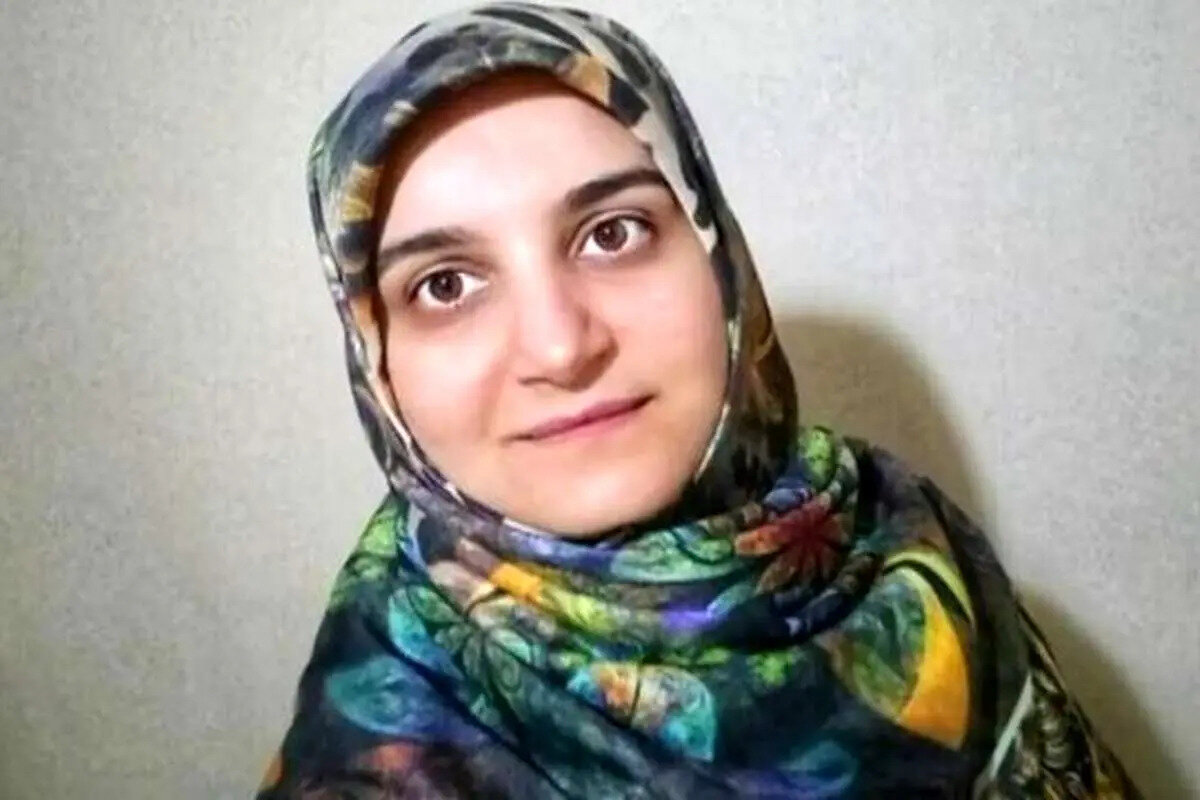‘She is a hostage;’ Iranian academic faces solitary confinement in France for Palestine advocacy

TEHRAN – Mahdieh Esfandiari, a 39-year-old Iranian translator and academic at Lyon’s Lumiere University, has been detained in France since February 28, over social media posts supporting Palestine.
Her sister, Mohaddeseh Esfandiari, called the arrest a "hostage-taking" during an interview with Iran’s state television on Tuesday, revealing that Mahdieh remains in solitary confinement under deteriorating physical and psychological conditions.
"After 55 days, they finally granted consular access," she stated, emphasizing that her sister is denied the right to wear her hijab and faces severe nutritional and emotional distress.
Vahid Jalalzadeh, Iran’s Deputy Foreign Minister for Consular, Parliamentary, and Iranian Expatriates Affairs, echoed the family’s outrage, asserting that Esfandiari’s detention constitutes "hostage-taking by a nation claiming to champion free expression."
He confirmed that French authorities have presented no credible legal evidence to justify charging her with "apologie du terrorisme (incitement to terrorism)."
"Her only crime was publishing content in solidarity with Gaza’s oppressed people," Jalalzadeh stressed, noting that Iran initiated 42 diplomatic and legal actions since March 4, including formal notes, summoning French envoys, and securing legal representation.
Despite three consular meetings with the detained academic—the latest on May 28 with Iran’s Ambassador to Paris—family visits remain prohibited.
Jalalzadeh also verified that French prison officials are coercing Esfandiari to remove her hijab, a violation of her fundamental religious rights.
Esfandiari’s arrest followed a violent police raid on her home in Lyon, where masked officers broke down her door and took her away without explanation.
For weeks, her family and Iranian diplomats received no information about her whereabouts until French magazine Le Point revealed she was held in Fresnes Prison near Paris.
Prosecutors tied her case to a 2023 report by France’s National Online Hate Crime Center (PNLH), accusing her of publishing social media posts about Palestinian fighters’ Al-Aqsa Storm Operation in October 2023 of "inciting terrorism."
Notably, the PNLH has faced scrutiny for systematically suppressing pro-Palestine voices, including banning the activist group Collectif Palestine Vaincra and prosecuting trade unionist Anasse Kazib for similar social media activity.
In a press conference on Tuesday, Asghar Jahangir, Spokesperson for Iran’s Judiciary, condemned the detention as "illegal and a blatant breach of freedom of expression and personal security," citing the Universal Declaration of Human Rights and International Covenant on Civil and Political Rights—both ratified by France.
"Prosecutors allege terrorism charges, yet her posts solely defended Gaza’s oppressed population. In France, supporting oppressed nations is criminalized," he stated.
Jahangir confirmed Iran’s High Council for Human Rights is pursuing Esfandiari’s unconditional release through diplomatic channels.
Silencing pro-Palestine voices while fueling genocide
Esfandiari’s case mirrors Paris’s escalating crackdown on Iranian activists and journalists.
One case involves the Iranian-French journalist Shahin Hazamy, who was arrested on April 22 when 10 masked officers stormed his Paris home, causing significant distress to his wife and young children.
Charged with "apologie du terrorisme," Hazamy had previously criticized Esfandiari’s detention and shared a viral video of a Palestinian mother at a Paris rally that garnered 50 million views just days before his arrest.
In another instance, Bashir Biazar—previously associated with the Islamic Republic of Iran Broadcasting—was deported in June 2024 after spending 28 days in administrative detention for Instagram posts condemning the Israeli regime’s genocidal war on Gaza.
Paris accused him of "anti-French remarks," a measure that Iran’s Judiciary condemned as a human rights violation.
Biazar, now freed, contends that these arrests reflect France’s "medieval tactics" to align with Israeli interests.
“While France defended Charlie Hebdo’s anti-Islam cartoons as free speech, it prosecutes Muslims for supporting Palestine,” he stated in a recent interview with an Iranian TV channel, adding that “this hypocrisy exposes a campaign to criminalize anti-Zionism under the guise of combating terrorism.”
France’s ongoing repression of pro-Palestine voices stands in sharp contrast to President Macron’s claims of pressuring the Israeli regime over Gaza’s humanitarian crisis.
While French authorities have recently issued tepid threats of sanctions against Israeli officials, critics argue that these measures are both too little and too late.
For decades, Paris has maintained an uneasy military connection with Tel Aviv. Despite public posturing, French companies have supplied crucial components to the Israeli arms industry.
Recent revelations show shipments—including a 14-tonne consignment of machine gun spare parts from the port of Fos-sur-Mer—further entrench this complicity.
French dockworkers have even taken to blocking these shipments, condemning their role in facilitating an ongoing campaign against Palestinian civilians.
This dual strategy exemplifies France’s dangerous complicity, silencing pro-Palestine voices while bolstering Israel's war machine.
Leave a Comment